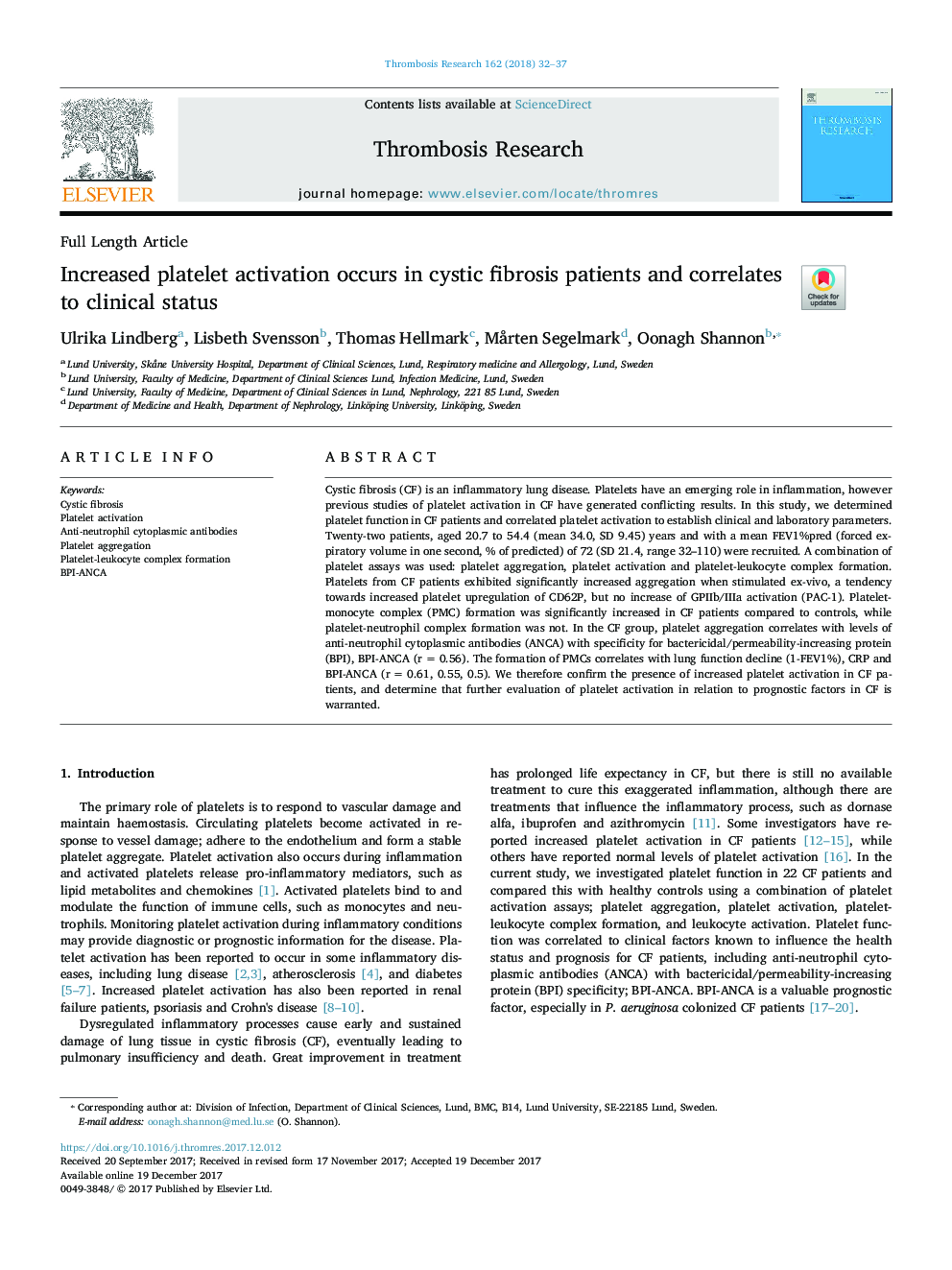| Article ID | Journal | Published Year | Pages | File Type |
|---|---|---|---|---|
| 8679678 | Thrombosis Research | 2018 | 6 Pages |
Abstract
Cystic fibrosis (CF) is an inflammatory lung disease. Platelets have an emerging role in inflammation, however previous studies of platelet activation in CF have generated conflicting results. In this study, we determined platelet function in CF patients and correlated platelet activation to establish clinical and laboratory parameters. Twenty-two patients, aged 20.7 to 54.4 (mean 34.0, SD 9.45) years and with a mean FEV1%pred (forced expiratory volume in one second, % of predicted) of 72 (SD 21.4, range 32-110) were recruited. A combination of platelet assays was used: platelet aggregation, platelet activation and platelet-leukocyte complex formation. Platelets from CF patients exhibited significantly increased aggregation when stimulated ex-vivo, a tendency towards increased platelet upregulation of CD62P, but no increase of GPIIb/IIIa activation (PAC-1). Platelet-monocyte complex (PMC) formation was significantly increased in CF patients compared to controls, while platelet-neutrophil complex formation was not. In the CF group, platelet aggregation correlates with levels of anti-neutrophil cytoplasmic antibodies (ANCA) with specificity for bactericidal/permeability-increasing protein (BPI), BPI-ANCA (r = 0.56). The formation of PMCs correlates with lung function decline (1-FEV1%), CRP and BPI-ANCA (r = 0.61, 0.55, 0.5). We therefore confirm the presence of increased platelet activation in CF patients, and determine that further evaluation of platelet activation in relation to prognostic factors in CF is warranted.
Keywords
Related Topics
Health Sciences
Medicine and Dentistry
Cardiology and Cardiovascular Medicine
Authors
Ulrika Lindberg, Lisbeth Svensson, Thomas Hellmark, MÃ¥rten Segelmark, Oonagh Shannon,
